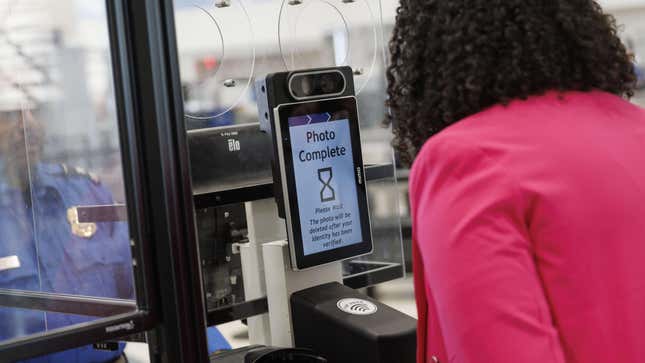
The Transportation Security Administration is seeking to significantly expand the use of facial recognition technology at airport checkpoints and legislators are rightfully concerned. A letter signed by a bipartisan group of 14 senators was sent to Senate leadership on Thursday and calls for restrictions on the TSA. The lawmakers claim there’s no evidence that the technology is effective and its implementation would start society down a slippery slope when facial recognition surveillance is commonplace in all public places.
America’s terminal securers are planning to expand its use of facial recognition from 84 to over 430 airports. The technology is currently used in the screening process when passengers hand over their passport or ID to an officer. The system is intended to ensure person pictured on the documents is the same person at the checkpoint. The TSA claims that these photos aren’t stored or saved. Passengers have the right to decline to have their face photographed.
While participation is optional, legislators fear that the TSA’s implementation will condition Americans to view government-operated facial recognition as normal. If the tech is seen as normal, then other agencies could easily implement it without question in schools, parks and roads. The lawmakers demand more oversight and scrutiny to force the TSA to prove that facial recognition is actually useful for its stated purpose. The letter to Senate leadership reads:
Furthermore, this powerful surveillance technology as deployed by TSA does not make air travel safer. In response to congressional inquiries, TSA has not produced evidence that more false identification documents have been discovered since their implementation of facial recognition. The 3% error rate cited by TSA represents more than 68,000 mismatches daily if used on all 2.3 million daily travelers.
The letter also noted the numerous incidents that people have been able to circumvent airport security and recommended the TSA “focus on the fundamentals.” Earlier this year, a woman simply walked through an empty security checkpoint in Nashville and boarded a flight to Los Angeles without a ticket. The TSA should stick to screening bags and not try to be the harbinger of a fully-automated surveillance state.